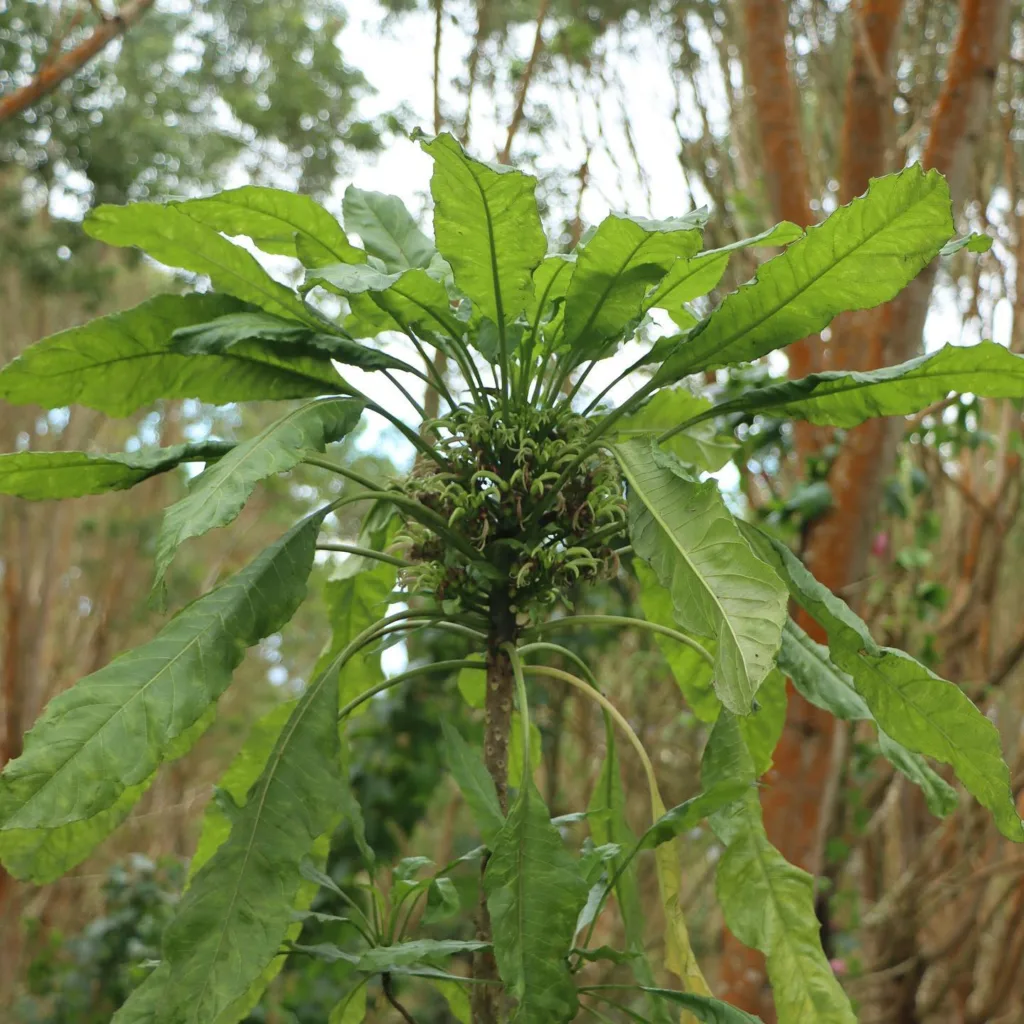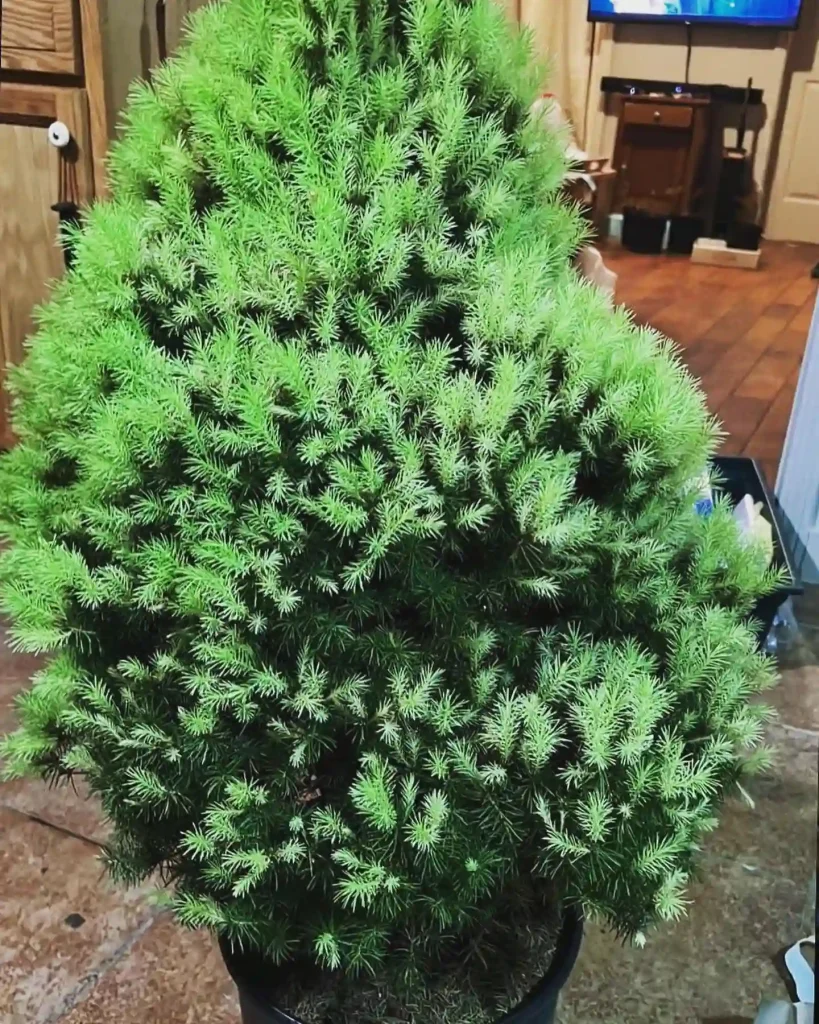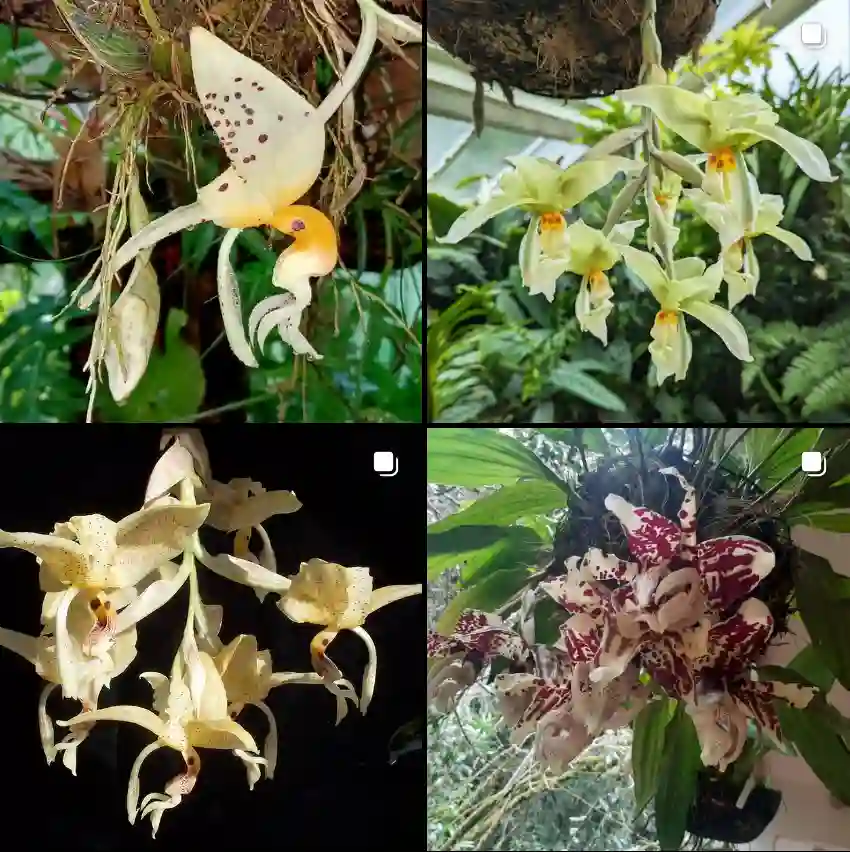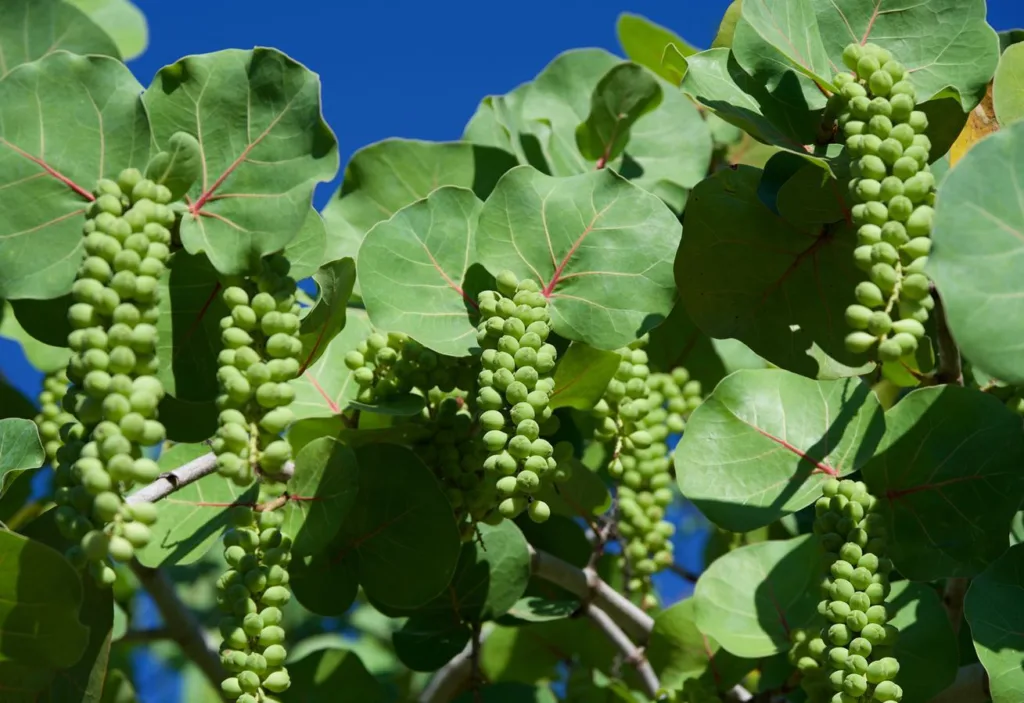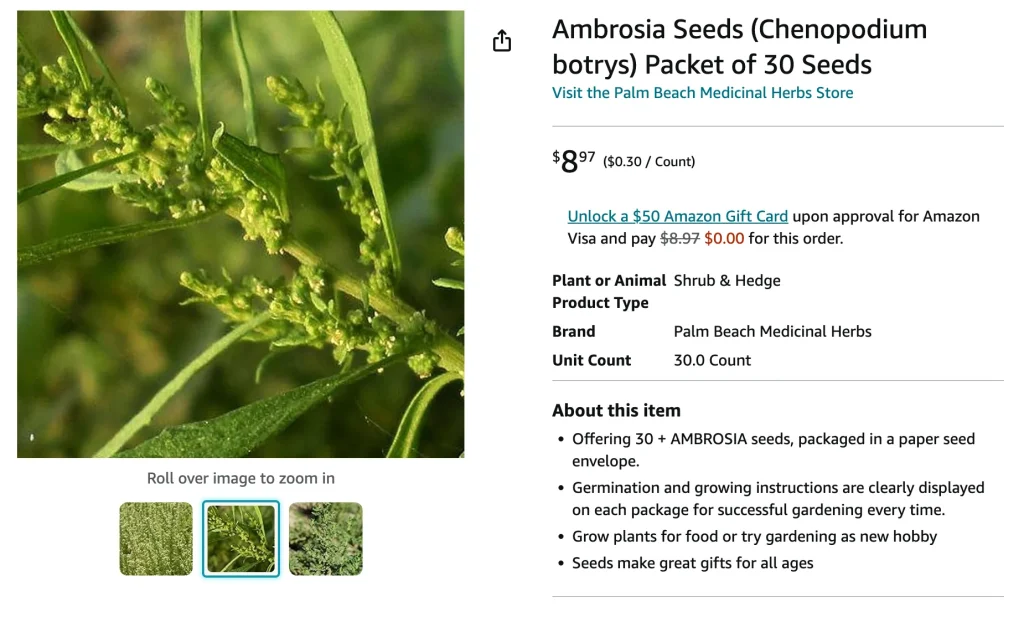
April 8 – Ambrosia
"Ambrosia, the divine plant, represents April 8."
Ambrosia stands for immortality and inspiration. You have a visionary mind, often thinking beyond the present moment. Like this plant, your ideas leave a lasting legacy.
Ambrosia Genus (Ragweed): A Gardener’s Guide
As a gardener, I’ve encountered two very different sides of the Ambrosia genus from the Asteraceae family. On one hand, there’s the ambrosia salad, a classic dessert with a delightful name. On the other hand, there’s ragweed, a notorious cause of seasonal allergies. Let’s untangle the confusion and explore both sides of the Ambrosia coin!
What is Ambrosia? What Does Ambrosia Mean?
The name “ambrosia” has a fascinating double meaning. In Greek mythology, ambrosia was the food of the gods, granting them immortality. In the culinary world, ambrosia salad is a light and refreshing fruit salad, typically featuring pineapple, oranges, marshmallows, and whipped cream.
Ambrosia Species
- Ambrosia acanthicarpa Hook.
- Ambrosia acuminata (Brandegee) W.W.Payne
- Ambrosia ambrosioides (Delpino) W.W.Payne
- Ambrosia arborescens Mill.
- Ambrosia artemisiifolia L. Plant FAQs: Ambrosia Artemisiifolia – Common Ragweed
- Ambrosia artemisioides Meyen & Walp.
- Ambrosia bidentata Michx.
- Ambrosia bryantii (Curran) W.W.Payne
- Ambrosia camphorata (Greene) W.W.Payne
- Ambrosia canescens A.Gray
- Ambrosia carduacea (Greene) W.W.Payne
- Ambrosia chamissonis (Less.) Greene
- Ambrosia cheiranthifolia A.Gray
- Ambrosia chenopodiifolia (Benth.) W.W.Payne
- Ambrosia confertiflora DC. Plant FAQs: Ambrosia Confertiflora – Denseflower Ragweed
- Ambrosia cordifolia (A.Gray) W.W.Payne
- Ambrosia deltoidea (Torr.) W.W.Payne
- Ambrosia dentata (Cabrera) M.O.Dillon
- Ambrosia divaricata (Brandegee) W.W.Payne
- Ambrosia dumosa (A.Gray) W.W.Payne
- Ambrosia eriocentra (A.Gray) W.W.Payne
- Ambrosia flexuosa (A.Gray) W.W.Payne
- Ambrosia grayi (A.Nelson) Shinners
- Ambrosia × helenae Rouleau
- Ambrosia hispida Pursh
- Ambrosia humi León de la Luz & Rebman
- Ambrosia ilicifolia (A.Gray) W.W.Payne
- Ambrosia × intergradiens W.H.Wagner
- Ambrosia johnstoniorum Henrickson
- Ambrosia linearis (Rydb.) W.W.Payne
- Ambrosia magdalenae (Brandegee) W.W.Payne
- Ambrosia maritima L.
- Ambrosia microcephala DC.
- Ambrosia monogyra (Torr. & A.Gray) Strother & B.G.Baldwin
- Ambrosia nivea (B.L.Rob. & Fernald) W.W.Payne
- Ambrosia pannosa W.W.Payne
- Ambrosia peruviana All.
- Ambrosia × platyspina (Seaman) Strother & B.G.Baldwin
- Ambrosia polystachya DC.
- Ambrosia porcheri P.D.McMillan & L.Prevost
- Ambrosia psilostachya DC.
- Ambrosia pumila (Nutt.) A.Gray
- Ambrosia salsola (Torr. & A.Gray) Strother & B.G.Baldwin
- Ambrosia sandersonii S.L.Welsh
- Ambrosia scabra Hook. & Arn.
- Ambrosia tenuifolia Spreng.
- Ambrosia tomentosa Nutt.
- Ambrosia trifida L. Plant FAQs: Ambrosia Trifida – Giant Ragweed
- Ambrosia velutina O.E.Schulz
Can You Freeze Ambrosia Salad?
While technically possible, freezing ambrosia salad isn’t ideal. The fruits lose their texture upon thawing, and the whipped cream may weep. If you must make it ahead, keep it refrigerated for up to 24 hours.
How to Make Ambrosia Salad?
The beauty of ambrosia salad lies in its simplicity. There’s no strict recipe, but here’s a basic guideline:
- Combine diced fruits like pineapple, oranges, and mandarin oranges.
- Add chopped nuts like pecans or walnuts for a textural contrast.
- Fold in miniature marshmallows for a touch of sweetness.
- Gently incorporate whipped cream or yogurt for a creamy base.
- Adjust sweetness with a drizzle of honey or maple syrup if desired.
This salad is best enjoyed chilled, making it a perfect summery dessert.
How Long is Ambrosia Salad Good For?
Ambrosia salad is best enjoyed fresh. Due to the cut fruits and dairy elements, it’s best to consume it within 24 hours of preparation.
What Does Ragweed Look Like?
Ragweed is a flowering plant with lobed, deeply divided leaves. The flowers themselves are inconspicuous, greenish-yellow, and wind-pollinated. However, the telltale sign of ragweed is the presence of burs – spiny seed heads that cling to clothing and fur, aiding in seed dispersal.
When is Ragweed Season?
Ragweed season generally peaks in late summer and early fall (August through September) in North America. This is when ragweed releases its pollen, triggering allergy symptoms in many people.
When Does Ragweed Bloom?
Ragweed blooms in late summer and early fall, coinciding with peak allergy season.
Where Does Ragweed Grow?
Ragweed is a native plant to North America but has become invasive in many other parts of the world. It thrives in disturbed areas like roadsides, wastelands, and fields.
How to Get Rid of Ragweed?
If ragweed is plaguing your yard, several methods can help:
- Manual removal: Pull up young ragweed plants before they flower and produce seeds. Wear gloves to avoid skin irritation.
- Herbicides: Use selective herbicides labeled for ragweed control. Be sure to follow application instructions carefully.
- Maintain a healthy lawn: A thick, healthy lawn can crowd out ragweed seedlings.
Is Ragweed the Same as Goldenrod?
While both ragweed and goldenrod are yellow, late-blooming wildflowers, they are entirely different plants. Ragweed has lobed leaves and inconspicuous flowers, while goldenrod has smooth-edged leaves and showy yellow flower clusters. More importantly, goldenrod does not cause allergies; in fact, it can help suppress ragweed pollen by attracting the same pollinators.
Can Chickens Eat Ragweed?
Yes, chickens can eat ragweed in moderation. However, it’s not a very nutritious food source for them.
Can Goats Eat Ragweed?
Goats can also eat ragweed, but it’s not their preferred food. They’ll likely choose tastier options first.
Is Ragweed Good for Anything?
Despite its reputation as an allergy inducer, ragweed has some redeeming qualities. It’s a valuable source of nectar for pollinators like bees and butterflies. In some cases, ragweed extracts have been used in traditional medicine for various purposes, although scientific evidence for these uses is limited.
When Does Ragweed Bloom in Georgia?
Ragweed season in Georgia typically peaks from late July through September. The exact timing can vary slightly depending on specific location and weather conditions.
Can Dogs Be Allergic to Ragweed?
Yes, unfortunately, dogs can be allergic to ragweed pollen. Symptoms can include itchy skin, excessive licking, sneezing, and watery eyes. If you suspect your dog has allergies, consult a veterinarian for diagnosis and treatment options.
Additional Considerations
Here are some additional points to consider regarding the Ambrosia genus:
- Varieties of Ragweed: There are several species within the Ambrosia genus, with slight variations in appearance and flowering times.
- Ragweed Allergy Management: If you suffer from ragweed allergies, consult your doctor about allergy medications and preventative measures like monitoring pollen counts and keeping windows closed during peak season.
- Beneficial Uses of Ragweed: Research is ongoing, but some studies suggest potential uses of ragweed extracts for wound healing and inflammation management. However, more research is needed before any definitive conclusions can be drawn.
I hope this comprehensive guide has shed light on the contrasting sides of the Ambrosia genus. From the delightful ambrosia salad to the pollen woes of ragweed, this plant offers a fascinating duality in the world of food and gardening.
If i die, water my plants!
